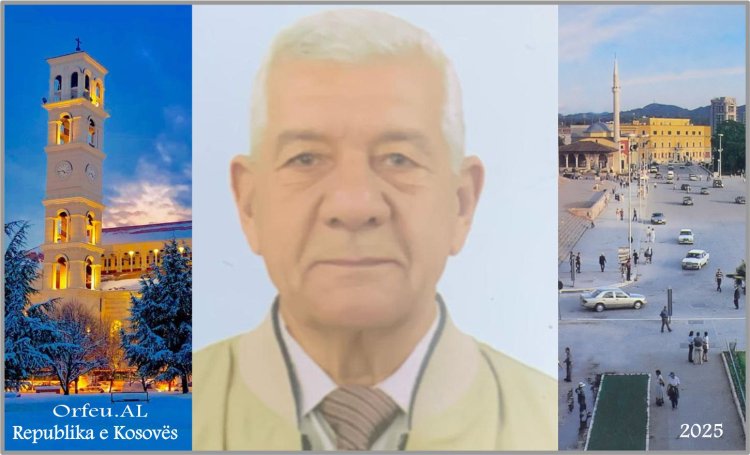TARIQ AL-AZZAWY (IRAQ)
FLAME OF REMEMBRANCE
He grew up reckless, a playful spirit spoiled by indulgence. Never once did he heed a warning, nor did defeat ever bend his will. The counsel of the wise passed through him like the wind, leaving no trace.
He abandoned his elementary school in its final stretch, unshaken by loss, for what is loss but loss itself? He found his refuge in the marketplace—a realm both of toil and of leisure—where he surrendered to the rhythm of life, neither lamenting what was left behind nor longing for what could have been.
He made his living pushing a wooden cart, a modest trade in sweets. Over time, he became one with it, growing accustomed to its burdens. Through the streets he roamed, calling out in a voice so rich, so melodious, that it harmonized with the elegance of his attire—an elegance that hinted at a past of privilege.
His sweets were a bridge, a tether that bound him to life, to people—especially schoolchildren, who savored them with delight. Yet, in stark contrast, his cart was a relic of weariness—a rickety thing, its wheels consumed by time, wobbling on their frail axes, groaning with a shrill, grating protest that summoned attention, annoyance, and scorn in equal measure.
That day, the street teemed with the fluttering of gazelles—young women gliding with regal grace, having just spilled forth from the gates of their high school. They flooded the pavement, filling the air with youthful mirth and vibrant motion.
At first, she did not notice him. But when she reached for her money to pay, her gaze fell upon his. Her fingers hesitated—so did his hands. A fleeting moment. Yet, beneath the silent scrutiny of her companions, beneath the weight of his own unreadable stillness, she pressed the coins into his palm with a delicate hesitancy, and he received them with an unfamiliar, unguarded shame.
She was not his beloved—no, she could not be. Once, when they were neighbors, before her family’s departure, she had been but a child, and he a child beside her. Yet, even then, when a classmate dared trouble her, he cast him into the mud. And when another sought to whisper words unfit for her ears, he met the same fate as the first.
He had once declared it, loud for all to hear: “Whoever dares come near her, I will break him.” And thus, by his own decree, she became sacred ground.
When the other girls asked, “Do you know him?”
She answered, simply and with quiet reverence, “Yes. He is the noblest man I have ever seen.”
He did not know, not precisely, what those words had stirred within him—what ember they had ignited, what wound they had seared open. But something had been devoured in the depths of his soul. Otherwise, whence came this burn?
He pulled his cart aside and covered his sweets with a thin white cloth—a quiet declaration of closure. Then, sinking onto his rickety, swiveling stool, he sat, weary, unraveling the moment in his mind, sifting through the words exchanged, the thoughts left unsaid:
“… But I stood still, and you walked on.”
Run! For the runner will always outpace the walker.
But running requires its field.
And in this age, there are ways to leap across time.
A coal rekindled, a wound freshly torn.
He cast his gaze upon himself—upon his stool, his cart, the gazelles that swayed and leapt, weightless in their youth. And then, upon her—an exquisite, unattainable confection dissolving into the distance, vanishing at the edge of his sight. Now, all that remained of her was a faint flicker of fingers, a gesture like the candles of a birthday cake, and a final glint in her eyes, a silent arrow loosed from a bow of light. He murmured as though in invocation, “Every ending demands a beginning.”
(Translated by Hasanian Riyadh Abdulzahra)
Prepared: Angela Kosta



